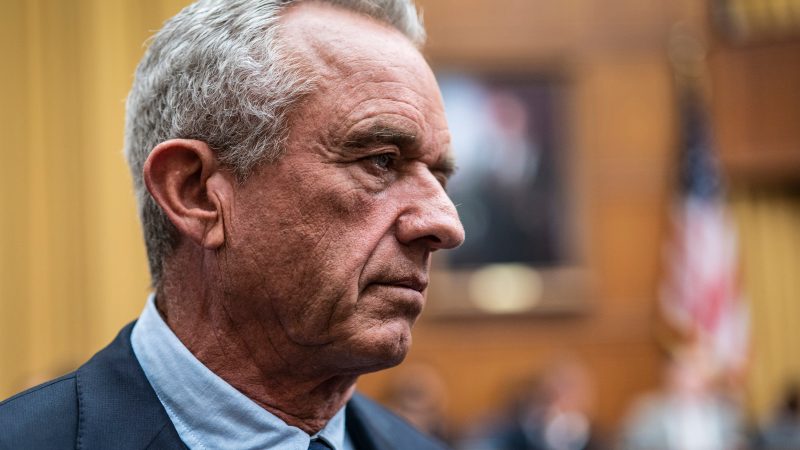An armed man impersonating a U.S. marshal was arrested and taken into custody at a campaign event for Democratic presidential contender Robert F. Kennedy Jr., the Los Angeles Police Department confirmed Saturday.
The police were contacted on Friday at around 4:30 p.m. Pacific time regarding a man with “a loaded gun in a shoulder holster and a badge stating he was a U.S. marshal,” a spokesman for the Los Angeles Police Department told The Washington Post. LAPD officers arrived shortly after and arrested the man, whom the police identified as Adrian Paul Aispuro, 44. He remained in custody Saturday in lieu of $35,000 bail, according to police records.
Kennedy posted a message about the incident on X, formerly known as Twitter, thanking his private security detail from Gavin de Becker and Associates, who first “spotted and detained an armed man” who attempted to approach him during a campaign speech timed to Hispanic Heritage Month at the Wilshire Ebell Theatre in Los Angeles.
Kennedy’s campaign said in a statement that the man claimed to be part of the candidate’s security team. The man told Kennedy’s private security “that he needed to be taken to the candidate immediately.” The security detail saw that he had a gun, surrounded him and notified the police, the statement said.
The suspect’s brother, Raymond Aispuro, said in a phone interview that he drove Adrian Aispuro to what he assumed was a private security job. Adrian Aispuro had previously worked as an emergency medical technician and in private security but was currently unemployed, the brother said. After Aispuro approached a guard checking people into the event, Aispuro was asked to wait outside.
“My brother backed up a few feet and that’s where he stood the entire time, and within minutes, the cops showed up,” said Raymond Aispuro. The police then arrested him and took both men to the station for questioning.
He said that both he and his brother were Donald Trump supporters but not motivated by any animus toward Kennedy. Raymond Aispuro said his brother “doesn’t care about Robert Kennedy in terms of trying to hurt the guy or his political stance.”
It was not immediately clear if Adrian Aispuro had an attorney.
After Kennedy’s father, Robert F. Kennedy, was assassinated in Los Angeles after winning the 1968 Democratic California primary, Congress changed the law to expand Secret Service protection to major presidential party candidates and their spouses.
Kennedy has complained about his lack of a Secret Service detail, though many candidates in modern presidential primaries never receive such protection because they are not deemed “major” candidates.
In his post on X on Friday night, Kennedy said again that he was hoping that “President Biden will allow me Secret Service protection.” However, it is not up to the White House or the Secret Service itself to make such a determination.
The Secret Service typically provides full-time protection only to “major party candidates” who meet certain polling and campaign thresholds, and only within a year of Election Day, after being authorized by the secretary of the Department of Homeland Security and an advisory committee made up of congressional leaders.
“Protection under these guidelines should only be granted within one year prior to the general election,” according to the Secret Service website. “Protection more than one year prior to the general election should only be granted in extraordinary, case by case circumstances in consultation with the committee, based on threat assessment and other factors.”
During the 2008 campaign, then-Sen. Barack Obama was approved for Secret Service protection in May 2007, well ahead of being the Democratic presidential nominee, because of threats directed at him.
“Although Mr. Kennedy is not a current protectee of the Secret Service, we were briefed by the LAPD on the man who was arrested for impersonation at Mr. Kennedy’s event last night,” a spokesman for the Secret Service said Saturday. “We understand no one was injured and it was excellent work by LAPD officers who quickly determined the man was an impostor.”
Carol D. Leonnig contributed to this report.

